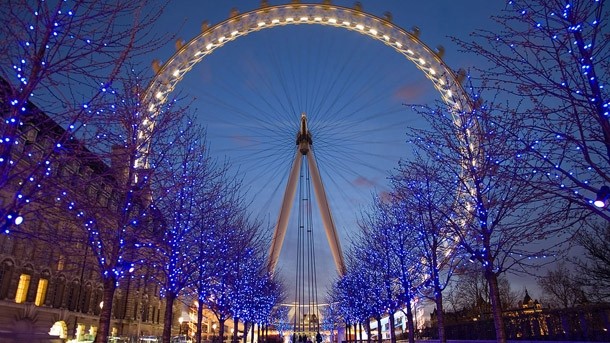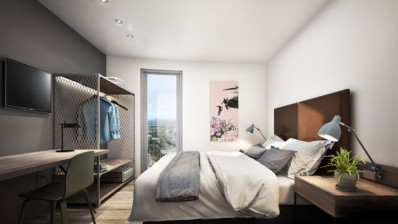Branded residences to change London hotel scene

The Mayfair real estate firm argues that the emergence of branded residence is the most “game-changing” development in the London luxury hospitality market, providing “the ultimate synergy vehicle” and a highly lucrative revenue stream.
“[It enables] income generation from apartment sales; hotel licensing, hotel room rates, hotel food, beverage and leisure facilities and serviced apartment services, at the same time benefiting from cross-selling opportunities across all sectors,” the report said.
Though there are less than a dozen branded residences across inner London, the firm expects that number to grow as the lines between hotels, serviced apartments and private properties get increasingly blurred.
And although branded residences are currently limited to 5-star hotel formats, the success of the likes of One Hyde Park, Bulgari Residences & Hotel, The Shard, Marconi House and The Residences at W Hotel indicates that the format could be expanded into the 3 and 4-star hotel sectors.
“With a 3 or 4-star hotel format facilitating a lowering of entry prices, this could also facilitate an expansion of the branded residences format from its current prime central location operating area, to outer London or key London commuter hub locations,” the report added.
Price gap
According to the same report, the price of renting a room in a hotel, serviced apartment or flat has hit a new record, with a 5-star hotel suite in London now costs £2,050 a night, eight times more than a night in a furnished apartment (£248).
The cost of a 5-star Mayfair hotel superior room (£497 per night) is higher than a serviced apartment in the same neighbourhood (£325), and double the price of private rented accommodation.
At £746,044, the cost of renting a hotel suite for a year in London is equivalent to the price of a flat in London or a country house in the counties.
It costs £14,347 to rent 5-star hotel suite for a week. In comparison, it is £3,477 for a 5-star superior room; £2,277 for a serviced apartment and £1,738 for a private rented furnished apartment: making a hotel suite 700 per cent more expensive than a rented apartment on a weekly basis.
5-star hotels dominate the pipeline
Rising property values (up 77.9 per cent since 2009), are making it increasingly unsustainable to open budget hotels in prime central locations.
As a result, 5-star hotels are dominating the pipeline, which includes the 75-bed Beaumont Hotel in Mayfair (opening in the autumn), the refurbished Lanesborough (scheduled to re-open at the end of the year), Galliard Group’s 235-bed 5-star hotel conversion of the former Scotland Yard meant to open in 2016 and the 100-bed Armani London Hotel, also opening in 2016.
However, Wetherell believes 5-star hotels are still in undersupply in the capital (representing 12 per cent of the capital’s 129,000 hotel rooms), as a 78-80 per cent average occupancy rate – higher than Dubai, Paris, Munich, Moscow, Barcelona and Rome – indicates strong demand for luxury accommodation.
“Occupancy rates in Mayfair and the wider West End are amongst the highest on the globe, beating the best locations in cities across Europe and the wider world. This is helping to drive new development and encouraging significant inward global investment into the hotel and luxury rented sectors in Mayfair, Knightsbridge, Whitehall and Kensington,” said chief executive Peter Wetherell.
Change of attitude
According to Wetherell, the rise in real estate prices in prime central locations has caused a change in attitudes towards the hotel property model.
“In 2000 the majority of hotel operators were owner occupiers and there were a limited number of developers with the desire and ability to deliver quality hotel developments.
“Increasingly there has been a greater degree of flexibility in investment, hotel-construction and ownership, and a dramatic rise towards outsourcing hotel management or leasehold structures, which has also increased the sectors appeal with investors,” the report said.
Developers that were previously focused on residential have now expanded into the hotel sector, with Galliard Group taking on the Great Scotland Yard, St James’s Club & Hotel and the 398 bed Park Plaza Hotel at County Hall for example.
Similarities
The report also highlighted the growing similarities between hotel rooms or suites, serviced apartments and private rented apartments.
For example, West End apartments are being rented fully furnished with brand new interior designs inspired by the hotel sector. Similarly, serviced apartments are increasingly offering housekeeping and leisure facilities that remind of hotels.
On the other hand, large hotel suites now also offer in-room dining, entertainment, outside terrace space and basic kitchen facilities. Most 5-star hotels also offer ‘signature suites’ which, like apartments, are designed by renowned interior designers with bespoke fittings, furniture and works for art.
Mayfair premium
Mayfair is London’s most expensive hotel destination with a record £11,700 a night for its most expensive suite, a 4 per cent price premium over equivalent venues in Knightsbridge and a 60 per cent price premium over St James’s, Whitehall and The Strand.
The area also contains four of the top ten most expensive hotel suites across the capital.


















